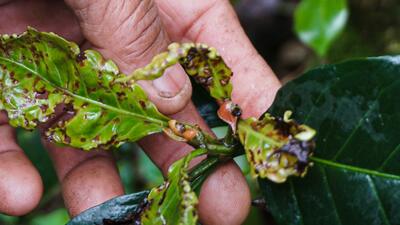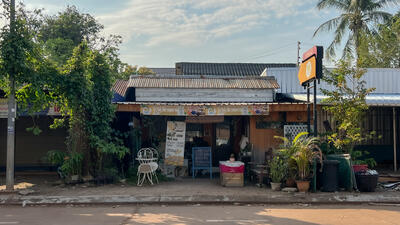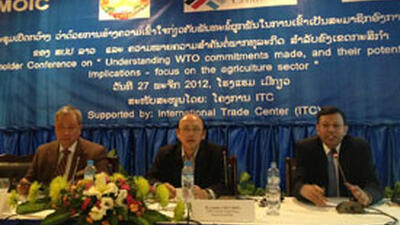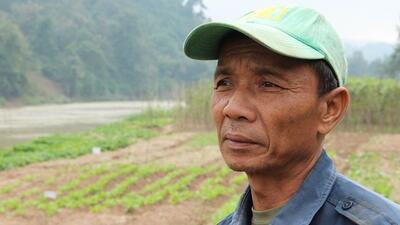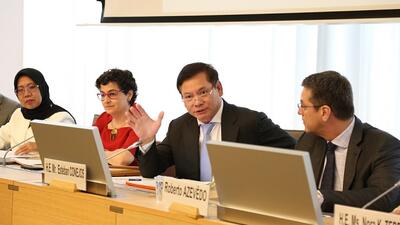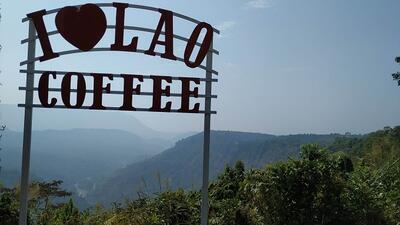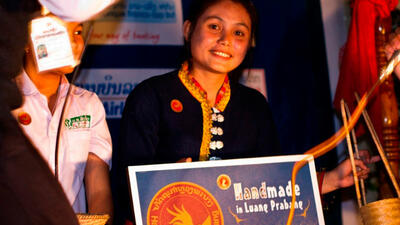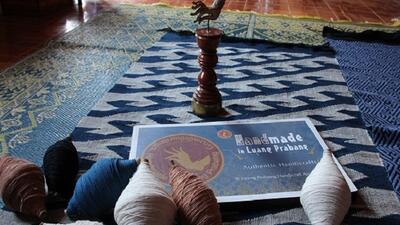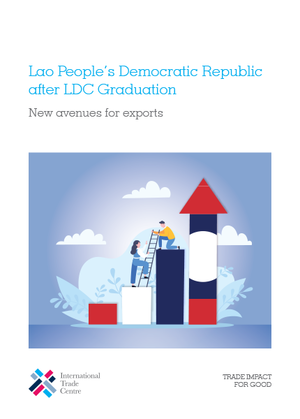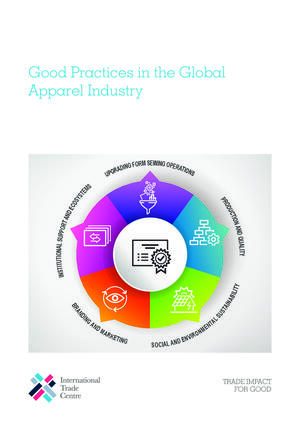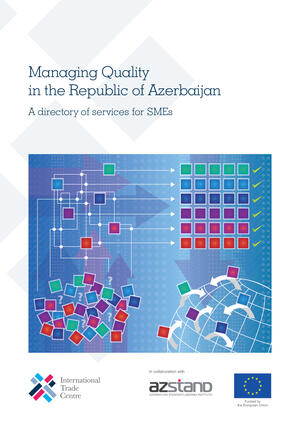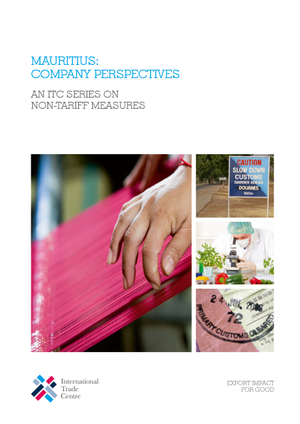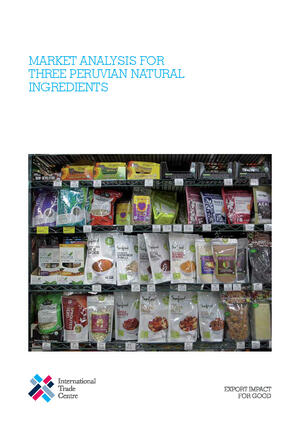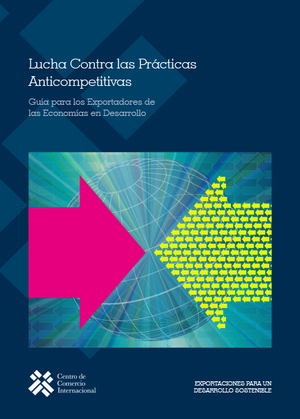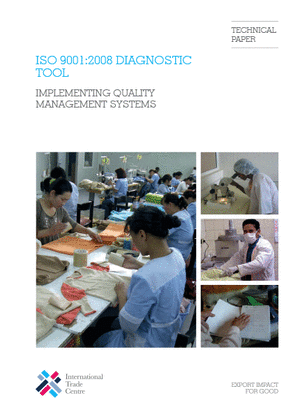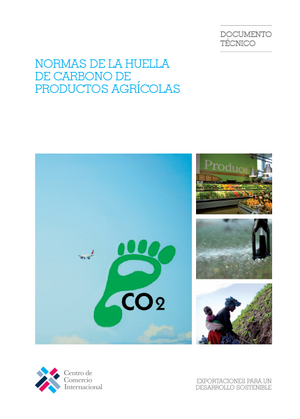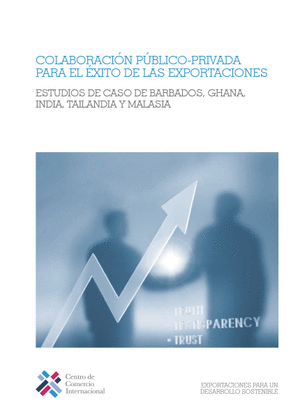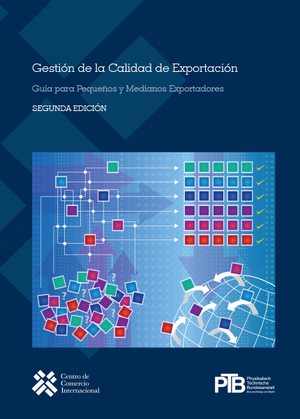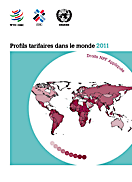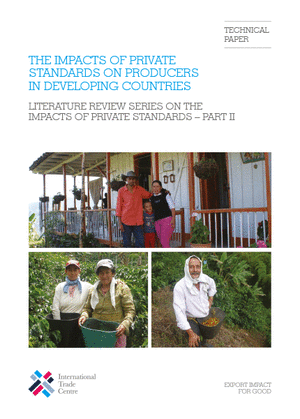
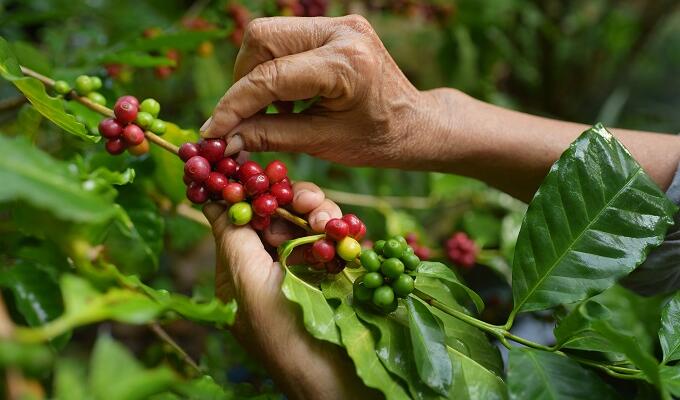
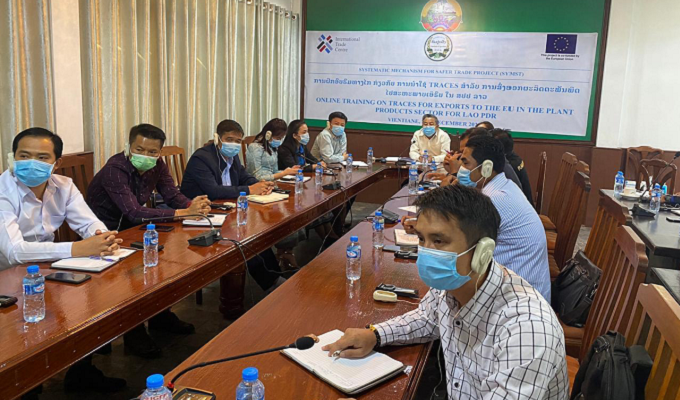
Lao People’s Democratic Republic uses e-certificates to fast-track exports of plants and food to the EU
How can the Lao People’s Democratic Republic (PDR) step up its plant health and food safety to export to European Union (EU) markets? Through e-certification.
Over 70 government officials, companies, sector associations and universities in Vientiane benefited from two-days of training on TRACES, the EU Trade Control and Expert System. This online tool helps prepare plant-health certificates quickly and efficiently and manages the official controls and route planning for EU markets.
Apart from giving an overview of EU export regulations and certification for fruits, vegetables and other plant products (such as rice and coffee) the training demonstrated the benefits of TRACES and how to use it. Moreover, one-to-one coaching sessions showed participants how to fill in phytosanitary certificates and send them through the system to the EU.
The training is part of the EU-funded ITC Systematic Mechanism for Safer Trade (SYMST) project, which strengthens control and compliance with plant health and pesticides measures in the country.
At the launch of the training on 7 December, the Department of Agriculture, the Delegation of the European Union to the Lao PDR, and the International Trade Centre emphasized the need to provide guarantees to the EU with regards to plant health and food safety.
‘The EU is interested to buy more products from Lao PDR, especially organic products,’ said Mr. Vincent Vire, Head of Cooperation at the Delegation to the EU in Lao PDR. ‘This is where the TRACES platform comes in very handy. It allows to simplify and speed up the import process. This useful capacity-building training facilitates trade between the EU and Lao PDR.’
Dr. Sulaphone Inthavong, Deputy-Director General of the Department of Agriculture said: ‘Thank you to the EU and ITC for supporting us in organizing this training. It is very important for LAO PDR to understand the new phytosanitary import regulations of the EU through TRACES.’
Mr. Khemraj Ramful, Senior Adviser on Export Quality Management at ITC said: ‘Understanding the EU regulations and initiating the use of TRACES is an important step for small businesses to trade and will contribute to the sustainable development of Lao PDR. Using digital support is even more important these days given the global pandemic; and TRACES can facilitate trade with the EU and reduce costs at the same time.’
The first two operators have been validated in the system and can now initiate a phyto certificate. The Systematic Mechanism for Safer Trade project will continue to support the Department of Agriculture with using TRACES and will assist in preparing and issuing phyto certificates.
Mr. Khamphan Keothavy, Deputy Director from the CPC Cooperative in Pakse, Champasack province, spoke about the benefits of the training: ‘We export coffee, especially to the EU. TRACES is very important for us to control our exporting documents and for certificates. Once the system enables us to issue phyto certificates, it will be very convenient.’
Mrs. Soumaly Phommahuk of Etu Green Garden, said after a one-to-one session: ‘We export vegetables to the EU. The training was a good opportunity to learn of the new EU regulatory framework for official controls and plant health. Preparing phyto certification on TRACES is an excellent practice; it is very convenient and will allow quick responses. The training also inspired me to develop my business and products.’




